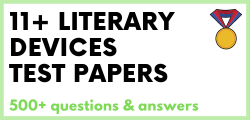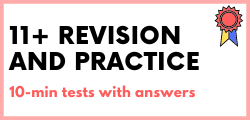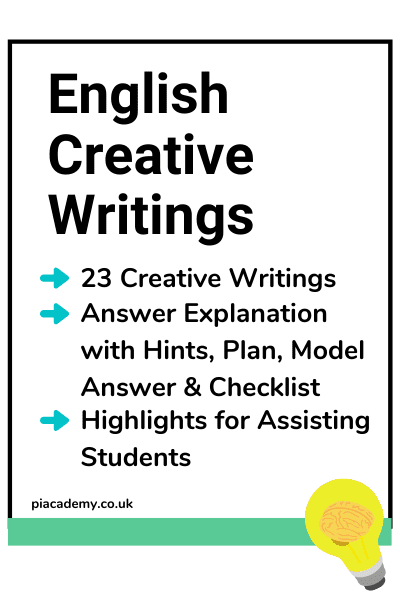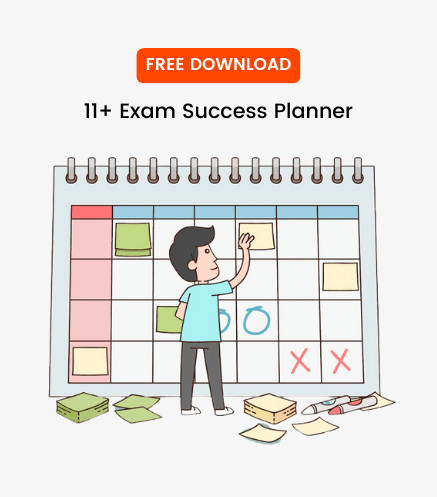Introduction: Your Guide to 11 Plus Comprehension
If your child is in the process of preparing for an upcoming 11Plus exam, it will be important for them to strengthen their skills in reading- particularly when it comes to their English and Verbal Reasoning papers. However, the ability to read is quite a broad concept; therefore, it’s important to be aware of precisely how your child’s reading will be assessed, and what key skills they need to develop in order to do well in their 11+ exam. This is why we have created the following handy 11+ comprehension guide.
11 plus comprehension worksheets typically involve a passage of text which your child will need to read carefully. After they’ve done this, they will need answering questions on the passage. While this might sound straightforward enough, your child will need to be a careful, confident and competent reader in order to complete this type of task to a high standard in an exam setting.
- Introduction: Your Guide to 11 Plus Comprehension
- What Are the Main types of 11Plus test Comprehension Questions?
- What Key 11+ Comprehension Skills Should my child develop?
- Tips for Developing 11 Plus Comprehension Skills
- Tricks for tackling the 11+ Comprehension test paper
- 11+ Comprehension Resources & Practice Papers
- FAQs
.
Check this Out: Top 5 Comprehension Tips to Score Full Marks
What Are the Main types of 11Plus test Comprehension Questions?
While it would be easy to assume that all comprehension 11 plus questions are vaguely alike, they fall into several fairly distinct categories, listed below. For a more detailed understanding of what each of these types of questions involve, consider reviewing 11+ Comprehension practice papers with answers.
- Inference
- Close reading
- Information retrieval
- Summary
- Predictions
- Vocabulary
- Author's choice
- Mixed questions
What Key 11+ Comprehension Skills Should my child develop?
When it comes to answering various types of 11 Plus Comprehension Multiple choice questions or free style questions, there are distinct skill sets required. Therefore, we recommend helping your child develop the following 11+ Comprehension skills and techniques.
- Finding Evidence
The ability to find evidence is how your child will retrieve relatively straightforward pieces of information in the text. When a question requires them to find evidence, children should use a combination of their own words and, where appropriate, incorporate short, relevant quotes from the text.
Evidence questions might be worth one mark or several marks- the number of marks available will be clearly specified next to the question. Generally, one mark will be awarded for each piece of information found. For instance, if an evidence question asks “What ways did the mouse make her home tidy? (4)”, your child will be required to write down four separate ways the mouse tidied her home, all of which must be mentioned in the text:
“The mouse makes her home tidy firstly by “beating the little rug” on her front door step. She then “sweeps away the dusty pantry cobwebs”, before “polishing the copper pans”. Lastly, she “scrubs the scullery floor” to get rid of footprints.”
Because these questions test a very basic level of textual comprehension, they are often placed earlier in Comprehension papers, rather than at a later stage.
- Using Their Own Words
The technique often referred to as “Own Words” involves your child summarising ideas or information from the 11+ comprehesion text without quoting. Questions which require this skill are extremely easy to identify, as the phrasing will explicitly instruct your child to use their own words in their answer.
For example, one of these questions might run something like “Explain in your own words why Miss Wodehouse is disappointed. (4)” For a question like this, the number of points available doesn’t necessarily correspond directly to the number of concepts or pieces of information your child should cover in their answer; rather, it connects to the overall depth and quality of their answer. In an example like this, your child should aim to include perhaps two reasons for the character’s disappointment, and focus their efforts on explaining each of these in a clear, well-developed manner:
“Miss Wodehouse is disappointed because the children seem to be very unenthusiastic about the surprise trip she had planned- they are rudely yawning and acting like it is not very exciting. She is also disappointed because she has gone to a lot of inconvenience and effort to organise the trip in secret, and she spent a lot of time planning it.”
While the focus in these questions should be on clarity and accuracy, it’s important to note that a well-developed vocabulary alongside sound spelling, punctuation and grammar will come in very useful when answering.
- Point, Evidence, Explain (P.E.E.)
Point, Evidence, Explain (P.E.E.) is a skill which forms a major aspect of 11+ comprehension test papers. Your child will need to be confident in structuring their answers using this format.
To identify when they should use their P.E.E. skills, there are some clues your child should watch out for: phrases like "suggest reasons why...", "why do you think...", "how does the writer use language to..." or "how does the writer show..." are often an invitation to apply P.E.E.
When answering these questions, your child should use the P.E.E. structure- either once, or- in the case of higher mark questions- a few times. For instance, a P.E.E question might ask something like “How does the writer use language to show David’s embarrassment? (4)”
Below is an example of how P.E.E.could be applied when answering this question. The “Point” part is in red, the “Evidence” (a quote) is in green, and the “Explain” part (which is the most difficult) is in blue.
The writer uses ellipsis to show David’s embarrassment: “Oh… I… I didn’t know…” This suggests David is stuttering and pausing, and is unsure of what to say.Note that in the question example above, 4 marks are available. As a rule, each successful use of P.E.E. is worth 2 marks, so your child would need to use this structure twice when answering this question, in order to get full marks.
- Working Out Meaning of Words & Phrases
This skill requires your child to either explain the meaning of an individual word in a text, or in some cases it might require them to explain the meaning of an entire phrase- such as a simile, a metaphor, or some other challenging piece of imagery or phrasing.
Sometimes these questions will include a set of deliberately challenging individual words in the text, and ask your child to write a definition of each one. It’s important to note that when answering these questions, meaning can often be found from the context of the words in the text.
For example, in a phrase like “The horses were whipped and pushed grotesquely beyond their limits”, the word “grotesquely” might be unfamiliar. However, in this context, it is clear this word must be to do with a gross, unpleasant, or perhaps nasty excess. Thus, your child might be able to successfully work out its meaning even without knowing the word. Practicing 11+ Vocabulary test papers packed with frequently asked 11+ words could be very beneficial for your child for handling these types of questions in theri 11+ tests.
Tips for Developing 11 Plus Comprehension Skills
When it comes to preparing for 11+ english comprehension papers over the long term, here are a few tips and tricks which might come in useful:
- Help your child to develop a daily reading habit- this should not be a chore. No matter what your child is interested in, there are books which they will find enjoyable and engaging.
- Discuss your child’s reading with them- ask them questions about the characters they’ve encountered or about interesting things they’ve learned; showing your interest will help make reading more interesting to them.
- Encourage your child to write- one of the best ways to complement your child’s reading is to give them a lot of opportunities to practice writing stories of their own.
- Help them develop new vocabulary- actively encourage your child to learn and use new words they’ve read or heard. Help them become practiced in using a dictionary when they come across words they don’t know.
- Read with your child- choose books which are exciting and interesting but slightly beyond your child’s reading ability. Read to them or take turns reading and listening to each other; this can be another excellent way of building vocabulary.
- Consider hiring an 11+ tutor- If you’re not confident in supporting your child with comprehension, hiring an 11Plus tutor to guide your child in this area could be a great investment.
Tricks for tackling the 11+ Comprehension test paper
When it comes to the 11+ comprehension paper or even just using past papers, we recommend the following method. This way of tackling the 11+ paper won’t come naturally at first to most children- however, it’s an excellent way of building confidence and an organised, careful approach.
- Carefully read the comprehension text once, and don’t write anything down.
- Carefully read every question below the text once- again, without writing anything.
- Still without writing anything down, give the text another skim, this time looking out for answers to the questions.
- Now begin answering, using complete sentences (unless a question says otherwise). Use the mark scheme to judge whether you’ve made enough points in each answer.
- Check over all your work carefully.
11+ Comprehension Resources & Practice Papers
To give your child plenty of opportunities to practice their 11Plus comprehension skills, we recommend using both past papers and tailored 11+ comprehension resources designed specifically for this purpose.
If your child is sitting a GL 11Plus test, consider using GL comprehension practice papers which will help you get a clear idea of the format your child will encounter on their exam day. Similarly, if your child is sitting the CEM 11+ comprehension test, the CSSE 11Plus, an independent school 11+ or the SET 11+, consider using resources which reflect this.


















































